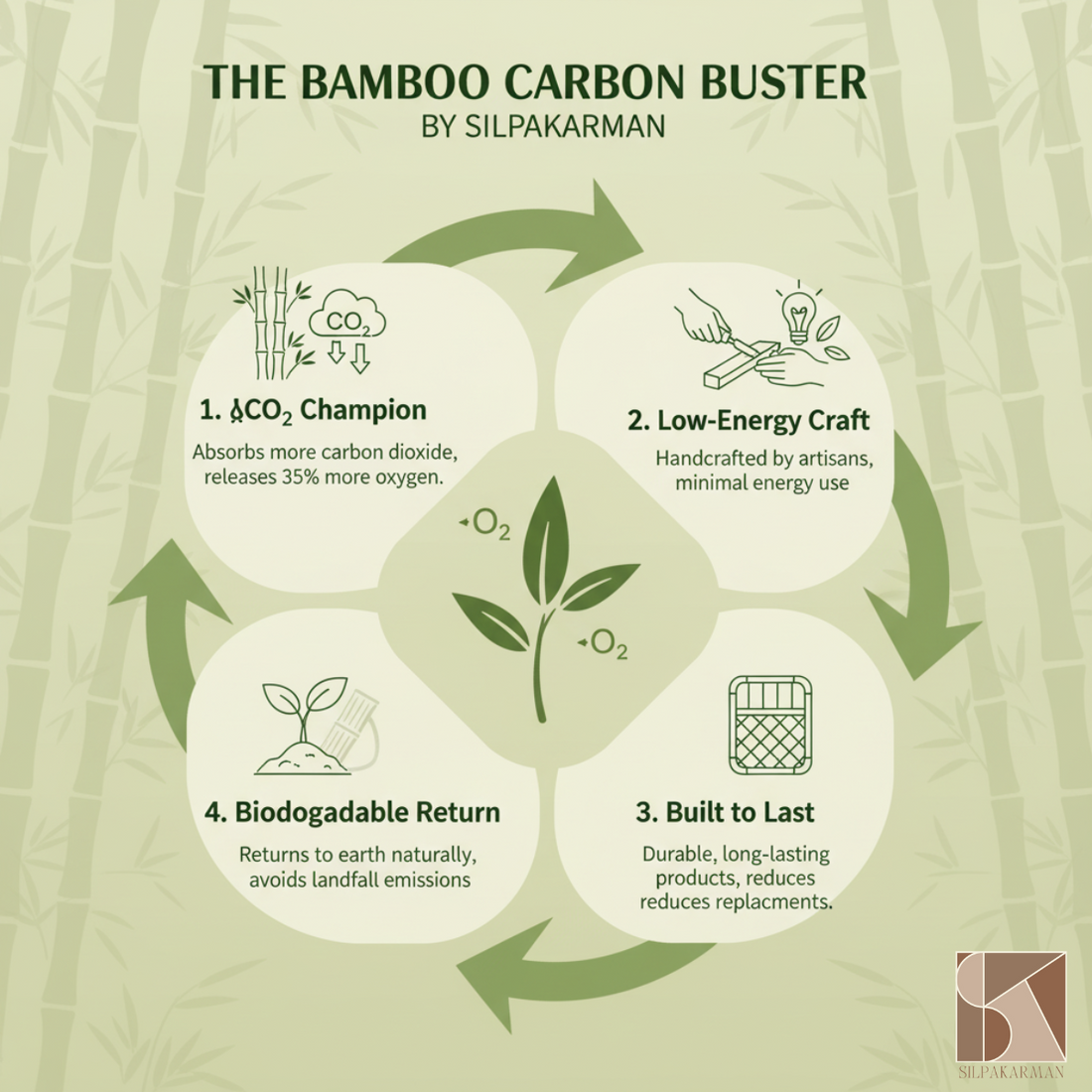
The Carbon Buster: How Choosing Bamboo Shrinks Your Environmental Footprint
Compartir
In the global effort to combat climate change, every choice we make as consumers matters. Your carbon footprint—the total amount of greenhouse gases generated by your actions—is constantly being tracked, and the biggest reductions often come from rethinking the materials in your home.
This is where bamboo, the world’s most powerful grass, steps in as a true carbon buster.
1. The CO2 Champion in the Field
Bamboo is scientifically proven to be a powerhouse for carbon sequestration. Compared to many slow-growing trees, bamboo:
- Absorbs more CO2 : Its rapid growth rate means it locks away more carbon dioxide from the atmosphere over a shorter period.
- Releases more Oxygen: It produces up to 35% more oxygen than an equivalent stand of trees, actively cleaning the air.
- Needs Zero Chemicals: Our bamboo is grown without the need for harmful pesticides or fertilizers, eliminating the associated carbon costs of chemical production.
2. A Minimal Footprint in Manufacturing
The carbon savings don't stop once the bamboo is harvested. Our dedication to artisan craftsmanship drastically reduces the energy needed for production:
- Low-Energy Processing: Hand-weaving, carving, and crafting require minimal machinery and use less electricity compared to energy-intensive industrial processes used for plastic, metal, or conventional wood.
- Local Supply Chain: By working closely with local artisan communities, we shorten transportation distances and cut down on emissions associated with complex, globalized supply chains.
3. Built to Last, Designed to Endure
The most sustainable product is the one you don't have to replace often. Since Silpakarman's bamboo products are durable and meticulously handcrafted, they directly combat the throwaway culture:
- Longevity: Choosing a bamboo dining mat over a disposable one means avoiding the repeated cycle of manufacturing, shipping, and disposal—saving carbon emissions each time.
- Biodegradability: At the very end of its long life, bamboo decomposes naturally, avoiding the energy costs and methane emissions associated with plastic waste in landfills.
By consciously choosing Silpakarman's bamboo products, you are making a measurable reduction in your personal carbon footprint, supporting regenerative systems, and casting a vote for a healthier planet.
